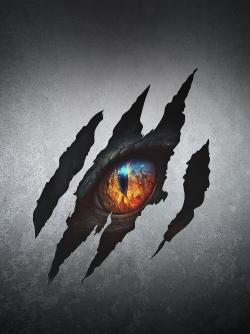Will You Worship Death?
Many today don’t think of Halloween and other “harmless” holidays and traditions as religious affairs. But what is the real, dark truth about these observances rooted in pagan worship?
Grotesque masks and costumes, terrifying images of movie monsters, sugar skulls and carved pumpkins, gravesite offerings for the dead—this year, millions of people around the world will observe Halloween, All Saints Day, All Souls Day, and the Day of the Dead. Will you?
Most people today know that the modern Halloween festival has its roots in ancient traditions that pre-date Jesus Christ—yet they have no qualms about taking part in a day that draws heavily on morbid pre-Christian practices and superstitions. What should it mean to Christians today?
What did ancient Halloween celebrations involve? “The two chief characteristics of ancient Hallowe’en were the lighting of bonfires and the belief that of all nights in the year this is the one during which ghosts and witches are most likely to wander abroad…. Further, it was a Druidic belief that on the eve of this festival Saman, lord of death, called together the wicked souls that within the past twelve months had been condemned to inhabit the bodies of animals” (“Halloween,” Encyclopædia Britannica, 11th ed., vol. 12, pp. 857–858).
So, how did professing Christians start following ancient Druidic practices? In 610 AD, Pope Boniface IV established the Feast of All Holy Martyrs, held annually on May 13. In 835, Pope Gregory IV transferred the celebration to November 1, a date he designated as “All Saints Day” in honor of Catholic martyrs for their faith. What activities are associated with that day? Even today, in some Catholic countries, a popular folk tradition holds that people’s departed loved ones annually return to their former homes on this day, also known as the “Day of the Dead.” The National described a tradition of the Philippines, where “thousands of dishes will be cooked affectionately for people who cannot eat them. Every November 1, on All Saints Day, cemeteries across the country are inundated with people carrying the favourite foods of their deceased loved ones” (TheNationalNews.com, November 1, 2020).
The November 2 festival known as “All Souls Day” was “based on the [Roman Catholic] doctrine that the souls of the faithful which at death have not been cleansed from venial sins, or have not atoned for past transgressions, cannot attain the Beatific Vision, and that they may be helped to do so by prayer and by the sacrifice of the mass” (“All Souls Day,” Encyclopædia Britannica, 11th ed. vol. 1, p. 709). This presumes a process by which those who are alive can perform ceremonies to somehow improve the condition of the deceased.
All these “festival of the dead” observances are based on the same general theme—to commune with, appease, serve, and even worship the dead. But are such practices based on the Bible? Should Christians observe them today? What does God say?
Where Do the Dead Go?
Many ancient religious traditions presume that the dead are somewhere other than in the grave. Many people assume that the departed dead are either in heaven, hell, or some sort of intermediate conscious state. Yet the Bible clearly tells us where the dead actually are.
Notice what the Apostle Peter said on the Day of Pentecost: “Men and brethren, let me speak freely to you of the patriarch David, that he is both dead and buried, and his tomb is with us to this day.… For David did not ascend into the heavens” (Acts 2:29, 34).
King David of Israel did not go to Heaven. The Apostle Peter, speaking centuries after David’s death, confirmed that David was still in his grave where he had been placed at death, and was awaiting the resurrection. What a contrast Peter’s words are to the mistaken belief, so pervasive among professing Christians today, that the saints, right now, are looking down at us from Heaven!
What, then, are the dead doing? The answer is neither mysterious nor spooky. The dead are simply “sleeping” in their graves—unconscious, waiting to be called to resurrection. What will happen when Christians are resurrected? The Apostle Paul explains that “the Lord Himself will descend from heaven with a shout, with the voice of an archangel, and with the trumpet of God. And the dead in Christ will rise first. Then we who are alive and remain shall be caught up together with them in the clouds to meet the Lord in the air. And thus we shall always be with the Lord. Therefore comfort one another with these words” (1 Thessalonians 4:16–18).
We can gain tremendous encouragement if we understand the truth about death and resurrection as taught in the Bible. We need not distress or confuse ourselves with the fearful superstitions fostered by the “festivals of death.”
Communicating with the Dead?
If the dead are unconscious in the grave—not alert as disembodied spirits in Heaven or elsewhere—can we communicate with them? On the “Day of the Dead,” do deceased family members actually return to their living relatives, as some believe? What does the Bible say?
Solomon explained that “the living know that they will die; but the dead know nothing” (Ecclesiastes 9:5). When righteous King David cried out to be saved from danger, he reminded God, “For in death there is no remembrance of You; in the grave who will give You thanks?” (Psalm 6:5). Solomon and David both understood that human beings cease from consciousness at death.
The biblical account of King Saul’s séance sometimes confuses casual readers who wonder about spirits existing after death. At first glance, one might think that a medium conjured up the spirit of the prophet Samuel at King Saul’s request (1 Samuel 28:8–15). But did the medium really bring Samuel back? Scripture explains that Saul “perceived” it was Samuel (v. 14). The description the medium gave him was simply of an “old man… covered with a mantle”—apparently an unclean spirit appearing in a form much like Samuel’s. Scripture shows that lying spirits do go forth to deceive, as did this one seeking to deceive Saul (cf. 1 Kings 22:22–23).
Yes, the Bible clearly shows that we cannot communicate with the dead. The dead are not aware of treats or offerings brought to their graves. They neither hear nor benefit from prayers made to them or on their behalf.
On the other hand, we do look forward to seeing our beloved friends and relatives in the resurrection, and it is certainly right to honor the memory of a deceased family member or friend at a funeral service, especially for the sake of the mourning relatives. We “honor the memory” of our deceased parents and grandparents—not by leaving trinkets at their graves or by hoping to welcome their spirits into our homes, but by following their edifying instruction and example, and by bringing honor to the good name they established while they lived.
Good, Clean Fun?
“But I don’t believe in all that mumbo-jumbo,” some might say. “I just like to have fun on a holiday.” Is there, in fact, anything wrong with the modern Halloween customs we commonly see? Could there be any problem with costume parties, scary stories, and the gathering of tasty treats? Should we be amused by plastic, battery-operated “goblins” glaring down at passing shoppers in a department store? After all, nobody today takes all the “scary” stuff seriously, right?
Perhaps that approach itself is part of the problem. The spirit world should be taken seriously. It is real, and it is dangerous to the unwary. Yet the dangers of the occult are often relegated to the status of a silly game, as though we could harmlessly play along if only we would “get into the spirit.”
Certainly, millions try to do exactly that. Even home décor maven Martha Stewart offers advice on how to decorate your front lawn with flickering pumpkins to create a spooky environment for fun. She states, “The excitement of All Hallow’s Eve is in the ether, the atmosphere charged by the sights and sounds and fears belonging to the night.... What we’re after is to beat the holiday’s phosphorescent spirits at their own game, to dispel their threat using the same palette of darting amber and inky shadow they use to scare us” (Halloween: The Best of Martha Stewart Living, 2001, pp. 13–14).
But God does not tell us to mock interaction with the spirit world. He does not tell us to act out modern versions of ancient Druidic rituals. Rather, He says, “Resist the devil and he will flee from you. Draw near to God and He will draw near to you” (James 4:7–8). God counsels us to be aware of the devil’s schemes so we can avoid his traps (2 Corinthians 2:11). Scripture reminds us that Christians are in a struggle against “principalities, against powers, against the rulers of the darkness of this age, against spiritual hosts of wickedness in the heavenly places” (Ephesians 6:12).
God’s Ways or Pagan Revelries?
Halloween celebrates mischief. It is considered a time to let inhibitions loose and suspend rules. Author Hugo Slim reminds us, “Hallowe’en still keeps many of the old pre-Christian games and rituals as part of its festivities. Games involving apples, dressing up and retribution are still enjoyed by children every Hallowe’en” (A Feast of Festivals, 1996, p. 176). He goes on to say, “The camouflage of fancy dress and pumpkin lanterns also provided the perfect cover under which to get even with an enemy. Hallowe’en therefore became an inevitable and acceptable time to settle old scores through the ancient custom of ‘trick or treat,’ a game which is extremely popular with many children today” (pp. 177–178).
But does God approve of Halloween festivities? The Apostle Peter explains that Christians should have given up lifestyles contrary to God’s way: “For we have spent enough of our past lifetime in doing the will of the Gentiles—when we walked in lewdness, lusts, drunkenness, revelries, drinking parties, and abominable idolatries” (1 Peter 4:3). Instead, “whatever things are true, whatever things are noble, whatever things are just, whatever things are pure, whatever things are lovely, whatever things are of good report, if there is any virtue and if there is anything praiseworthy—meditate on these things” (Philippians 4:8). The unclean and riotous origins of Halloween are not compatible with God’s instructions for Christians.
Reject Pagan Traditions
When God was preparing the Israelites to enter the Promised Land, He gave them specific and forceful instructions that they should not try to honor Him by practicing the traditions of the nations around them. They were not to absorb the observances of the Gentiles. They were to reject such practices, and instead faithfully follow God’s commands and instructions.
Moses instructed the Israelites, “When the Lord your God cuts off from before you the nations which you go to dispossess, and you displace them and dwell in their land, take heed to yourself that you are not ensnared to follow them, after they are destroyed from before you, and that you do not inquire after their gods, saying, ‘How did these nations serve their gods? I also will do likewise.’ You shall not worship the Lord your God in that way” (Deuteronomy 12:29–31).
God is calling Christians today to obey and worship Him in the way that He has chosen, not by following man-made traditions. If Jesus Christ has called you to Himself, to understand His truth, He has called you to be different. In the last hours of His life, Christ prayed that His disciples would not be of the world, even though they live in the world: “I do not pray that You should take them out of the world, but that You should keep them from the evil one. They are not of the world, just as I am not of the world” (John 17:15–16).
May God grant you the understanding and discernment to be different from the world, wholly follow Him, and reject the festivals of death.






